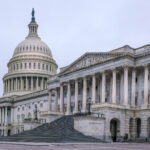
Feb 10, 2021 | Interviews
MGA founder and CEO Alex Brill recently appeared on The Hill event Virtually Live to discuss how complex generic medical alternatives can impact and potentially enhance the American healthcare system. In this interview, Brill talks with The Hill moderator Steve Clemons about the MGA report outlining the potential savings from accelerating US approval of complex generics.

Jan 19, 2021 | Interviews
Alex Brill recently joined Garrett Ballengee, founding executive director of the Cardinal Institute for West Virginia Policy, on their podcast “Forgotten America.” In this fascinating interview, Brill discusses the economic impacts of the opioid crisis in America, noting that the epidemic is no longer just an Appalachian problem.

Apr 23, 2020 | Interviews
“We want the program to work and I think that sadly what we’re seeing is that the program is working quite well. And I say sadly because we are seeing tens of millions of people process through that system and we’re going to continue to see that I think for the next few weeks as the backlogs in certain states get worked through…”

Jan 10, 2020 | Interviews
In anticipation of the December jobs report number being released later in the morning, Brill joins the morning news program to discuss his predictions that the number “will be right on the quarterly trend.”

Nov 14, 2019 | Interviews
“I advocate and support a carbon tax, but not just blindly, not just any carbon tax. It is critically important that the carbon tax be revenue neutral. That at the time at which this policy is put in place its done in a matter in which the revenues expected to be generated from the carbon tax are used to reduce other taxes that are more distortionary. This is what we would call the principles of basic tax reform.”

















